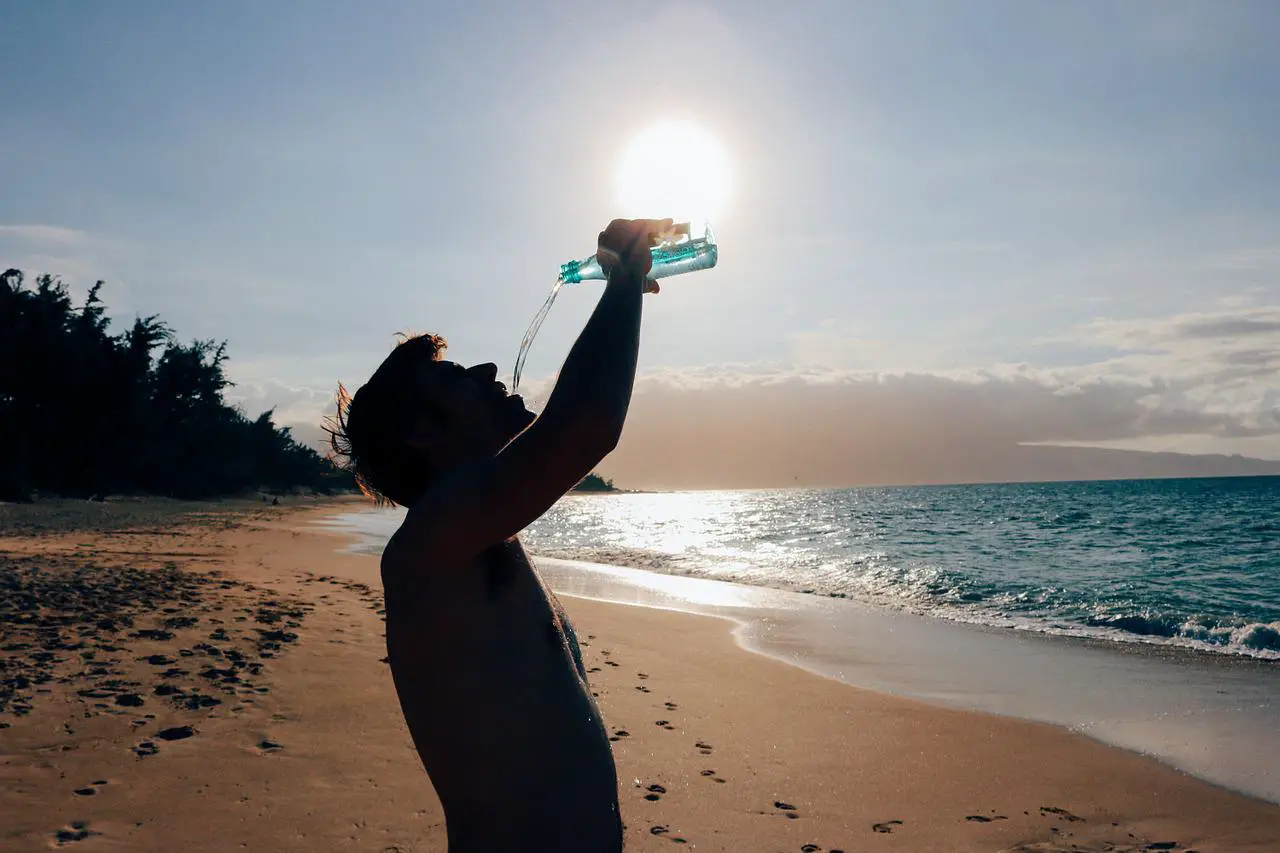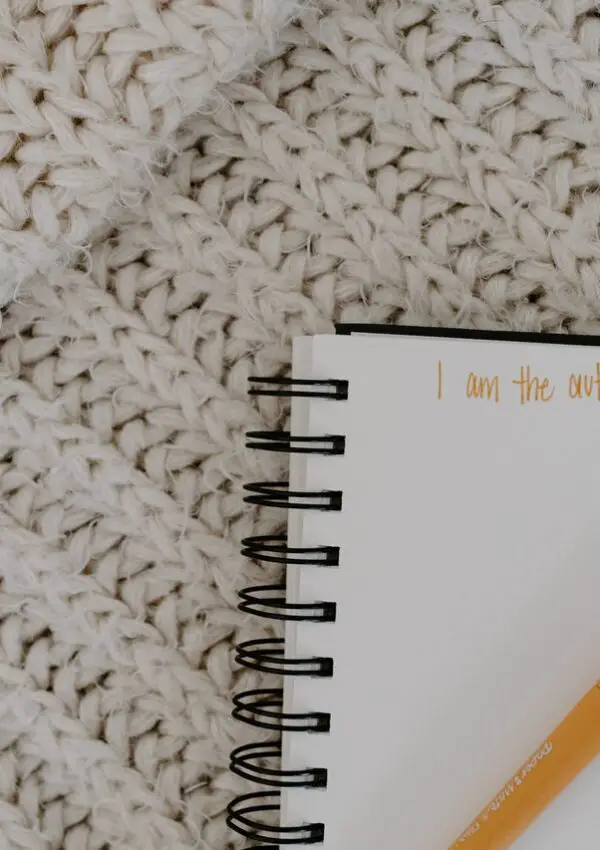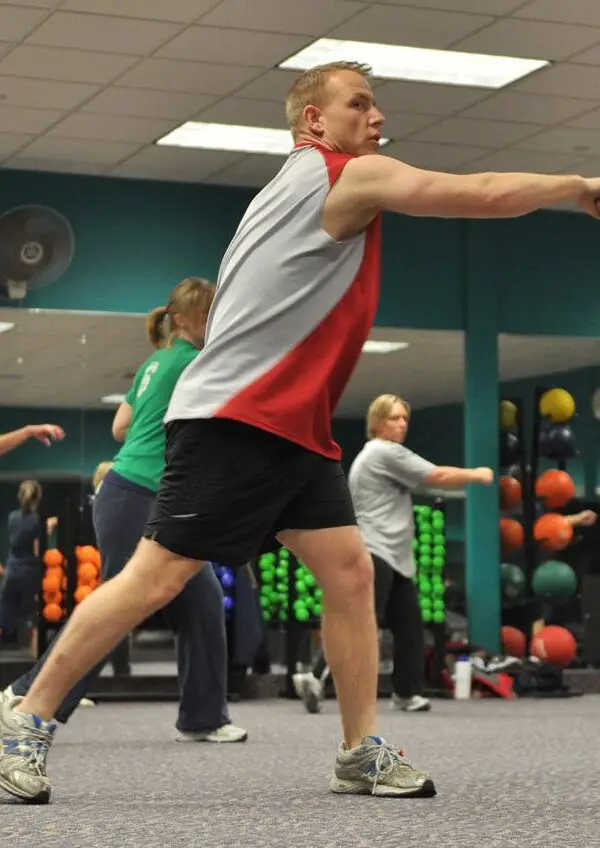
Different Types Of Drinking Schedules
Your body loses water throughout the day, mainly through sweat, urine, and normal bodily functions such as breathing. To avoid dehydration, you should drink enough water daily.
But how much water is enough? Experts recommend about 2 liters, which equals 8, 8-ounce glasses. This is known as the 8 by 8 rule, and it’s simple to remember.
Your drinking schedule should be spread out throughout the day with the 1st glass being around 7:00, 2nd glass at 9:00, and the last glass at 22:00. Your water requirements are influenced by several factors, including health conditions and activities you’re involved in. Sticking to the schedule ensures you stay hydrated and healthy.
This article will address all concerns about your water needs and drinking schedule.
Drinking Schedule
Your water drinking schedule should be as follows;
7:00-1st glass
After a full night’s sleep, take your first glass of water to rehydrate your body. After the first glass, wait at least 30 minutes to have your breakfast.
9:00-2nd glass
About an hour after breakfast, drink a glass of water before going about your daily activities.
11;30-3rd glass
Drink another glass 30 minutes before lunch.
13:30-4th glass
An hour after lunch, have a glass of water to help your body absorb the nutrients from your meal.
15:00-5th glass
During the tea break, have another glass of water.
17:00-6th glass
The 6th glass can keep you full and help you avoid overeating at supper.
20:00-7th glass
Take a glass of water approximately one hour after supper.
22:00-8th glass
Have your last glass of water one hour before going to bed to help your body’s cell renewal process.
Factors That Influence Your Water Needs
The amount of water you require is influenced by several things, including.
Exercise
Taking a sports drink containing salt during long bouts of strenuous activity will assist in replacing the sodium through perspiration, supply glucose to counteract weariness, and lower the danger of hyponatremia.
Different sports have different requirements for fluid intake. To maintain enough fluid intake before, during, and after a severe activity session, it is critical to stick to a prescribed fluid intake regimen.
Health Condition
For each degree Celsius increase in body temperature, fever can cause water loss by as much as 200ml/day. High fluid losses can also be caused by diarrhea and vomiting, necessitating a planned aggressive program to replace the fluids. Replacement beverages and oral rehydration treatments become critical in preventing dehydration in these situations.
You may require increased water or fluid intake for other illnesses such as urinary tract stones, bladder infections, gout, and constipation.
Weather Condition
Sweat loss is increased in humid and hot weather, necessitating greater fluid intake. During the winter, heated indoor air could also make you sweat more. Increased urination and faster breathing may occur at altitudes higher than 2500m, resulting in increased fluid loss.
Symptoms of Dehydration
When you’re dehydrated, your body loses more fluids than it takes in. It can worsen and become a significant problem if not treated.
Symptoms of dehydration include;
- Dizziness
- Feeling tired
- Dark yellow pee
- Feeling thirsty
- Dry lips, mouth, and eyes
- Peeing less than four times a day
To avoid the risk of dehydration;
- If you see any signs of dehydration, drink plenty of water.
- If you’re having trouble drinking because you’re unwell, start with little sips and gradually increase your intake.
- Use a spoon to make things easier for your youngster to drink fluids.
- Drink enough water throughout the day to keep your pee clear and pale.
- When you’re at risk of dehydration, drink. If you’re vomiting, sweating, or have diarrhea, for example.
Skin Benefits of Drinking Water
Your skin is the largest organ of your body. Your skin, which is primarily made up of water, can’t function properly without enough water.
Skin benefits of drinking enough water include;
Enhanced Complexion
Staying hydrated can help you fight psoriasis and eczema, among other skin conditions. It does this by helping your digestive system in removing toxins from the body. This will improve your complexion, resulting in healthy, glowing skin.
Drinking two glasses of water enhances blood circulation to the skin, which might help you achieve a more even complexion and tone.
Reduced Puffiness
Increasing your water intake throughout the day may help decrease puffy dark circles. If your body requires additional water, it will hold on to whatever it has for the time being. You can reduce puffiness and smoothen out your skin by consuming more water.
Fewer Wrinkles
You’ll notice fewer wrinkles if you stay hydrated. Water helps in the retention of moisture on the skin, which improves suppleness.
Water also helps keep your body moisturized and rejuvenated and maintains the flexibility of your skin. People who drink a lot of water have fewer scars, soft lines, and wrinkles and don’t show as many indications of aging as those who don’t.
PH Balance
Maintaining a healthy pH balance is crucial for your skin. Any substance’s pH varies from 0 to 14, with 14 being the most alkaline and 0 being the most acidic. A pH of 7 is neutral, and it is the same as the pH of pure water. The reason you should drink enough water is to keep your pH level balanced, which will result in healthier skin.
Prevent Acne
The tiny pores on your epidermis can be clogged by toxins, resulting in acne. You can avoid acne by drinking a lot of water. Your pores are less likely to clog if your skin is well hydrated.
Improves Elasticity
You may be dehydrated if you lack suppleness in your skin. Pinch your skin gently and see if it will bounce back to determine its elasticity. If it does not stretch back, you should increase your water intake to hydrate yourself and give your cells a boost. If you don’t moisturize and lose elasticity, areas like the skin beneath your eyes can appear dark.
Flush Toxins
Drinking water flushes toxins out of your system, hazardous ones that can impair your overall health. You can boost your skin health by increasing water intake and flushing out toxins in your body.
Ensure you come up with a clear water drinking schedule for glowing skin.
Water Drinking Schedule App
Knowing if you’re getting the proper quantity daily is not easy. Hydration apps can help with this.
Many apps can help you meet your daily target, including;
Hydro Coach App
Using the Hydro Coach app, you can specify your target intake or use the app’s calculator to figure out an ideal daily goal. If you’re breastfeeding or pregnant, you can modify the app to remind you when it’s time to take water.
WaterMinder
This simple, user-friendly tool determines the correct quantity of hydration for you based on your personal goal and body weight. The app then delivers daily reminders, making it simple to meet your daily intake goal. Create unique cups for quick and easy logging, then review the hydration history to view how far you’ve come.
Aqualert
Aqualert sends you notifications throughout the day to remind you to stay hydrated. It also calculates your daily water needs based on your activity level, ensuring you get enough. A convenient bedtime mode prevents the app from sending you reminders in the middle of the night.
Drink Water Reminder
With customizable timings and data of your water consumption depicted as graphs and logs, this app reminds you to take enough water throughout the day. The software can also connect with Google Fit and S Health, allowing you to combine your weight and water intake data with helping you better understand your hydration needs.
Final Thoughts
While everyone understands the importance of drinking enough water, it can sometimes be tricky. However, it would be best to strive to consume enough water according to your needs.
Ensure you follow the above drinking schedule and the essential tips to avoid the risk of dehydration. It’s the only way you’ll reap the full benefits of drinking water.






